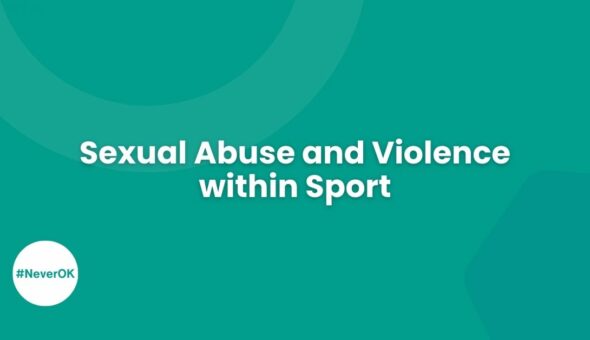Unless you've been living under a rock for the last few months you will have caught wind of the two movements #metoo and #timesup. Women all over the world are coming forward with their stories and experiences, sharing what happened to them, breaking the stigma and the need to remain silent. These messages can empower those that share them and give hope to those that read them. They should not stop.

However, there is something that I think we all need to consider. Whilst the world is becoming aware of and speaking about the crisis of sexual abuse and assault that we have in today's society and culture, this can create an environment and situation in which people like you, me and our loved ones begin to become aware of our own experiences too. I have noticed in recent months that whilst the world wakes up to this collective trauma, those around me, many of whom I love, dearly, are also waking up to their own experiences. This is no bad thing in terms of a first step towards healing, but that doesn't bring without it some difficulties.
A friend of mine gave permission for me to share her experience to illustrate what I am explaining. As the news broke about the sexual abuse/assault being experienced in the film industry, my friend felt a sense of panic and anxiety. This wasn't fear at the possibility of it happening to her or fear that these people are out there in the world. But she said there was hardly any thought about it at all. Her body was speaking to her - it was telling her to RUN, and to run FAST. She felt the need to escape and that she was incredibly unsafe. In the coming weeks she began to remember something that happened to her during her teenage years. She hadn't forgotten it, by any means - but she was beginning to see that what she had experienced was assault, and that her body had cleverly detached and numbed from it (she dissociated) but now it was starting to feel triggered by the news reports she was reading.
The thing about trauma is that whilst there is undoubtedly a mental component to it, so much of it lies within the body. Hearing other people's experiences can begin to wake up our bodies and we can start to recognise similarities. Because of the way trauma works, this might not even mean that these individuals have experienced sexual assault or abuse, but a different traumatic event. The nature of trauma is different for everyone, but sometimes the description of one persons experience can awaken another's. The discussion of flashbacks or guilt or shame for example could trigger ANY previous traumatic experience, whether that be related to sexual violence, military operations, car accidents or medical procedures. Trauma does not discriminate.
Now, I'd like to make it clear that I am not saying these women should stop telling their stories - absolutely not. But I think that it is wise of us as individuals to be alert and to offer support to those around us. We need to look out for each other, take care of each other and recognise that this huge shift in culture can be incredibly difficult, challenging and triggering for some who are processing their own traumas.
How might we do this?
First and foremost we need to take care of ourselves. Yes - it's the old 'put your own oxygen mask on before helping any one else' scenario. If you are considering supporting someone else through their recovery, or even being a space where people can share their experiences, you need to make sure you feel supported too. Whether that be through a nourishing self-care regime or through professional support.
Once you are taken care of, you can begin to be aware of others.
If you have a friend who has briefly or flippantly mentioned an experience that they didn't think was 'that bad' or that they didn't feel the need to get support for maybe you could be on the lookout for signs that they might be struggling or re-experiencing what they went through in a new light. If you are very close to them, you might like to mention that you haven't forgotten what they told you and that you are there should they need you. You may like to ask them how they are doing with all the stories that are coming out at the moment. It is really important to tread carefully and be intuitive about how you approach people.
Other things you can do are:
- Offer a safe space: someone re-experiencing or remembering trauma may struggle to feel safe. You may be a safe space in an emotional sense, but don't underestimate the power of a physical safe space. This might be hugging or holding someone, it might be sleeping over at their house, offering to drive them home or just being some quiet company.
- Be patient: individuals recognising their trauma for the first time (and even those who have been dealing with it for a while) are likely to go through many challenging and difficult to understand stages. These may include blame, anger, denial and sadness. It might be that they need the lights turned down or for a room to be quiet because their body is feeling overwhelmed. If you feel able to, being patient, even when you don't understand, can be such a gift.
- Believe them: there may be times when people sense they experienced something but might not even know whether it happened. There may be other occasions when it is crystal clear what happened but they begin to question if it was their fault, if it really happened that way or whether it even happened at all. Believing someone when they share their story is important and helps to create a safe space.
- Check in with them: As I mentioned, trauma resides in the body. It is important that individuals do what is important for them. This might mean working from home when their body is already experiencing an overwhelming amount of energy and activation. Ask them if they are taking care of their body, if they are giving their body the time and space to process what it needs to process.
- Don't push: chances are if someone is dealing with trauma related to sexual violence or abuse, they absolutely do not need to be pushed to do something they don't want to do - like talk about their experience or even get support. Respect this. If you are in a position to, ask them what their boundaries are at the moment. Ask them what can be discussed and what they'd prefer not to. Let them lead the way and have control in this, that can be incredibly healing.
This uprising of women (and men) sharing their stories and reclaiming their power and space in the world is incredible and long overdue. It is undoubtedly going to be a moment in history that will never be forgotten. But we must take care of ourselves and others during this time. We must look out for each other and be aware that this can be a deeply painful and difficult time for some. If you are in a position to, please support our fellow brothers and sisters as they make their own way through their healing journeys.
If you would like to read more from Tamsyn, you can visit her website, HealthPsychTam.
---
If you have been affected by sexual harassment or violence, you can contact Student Services via email or by calling 01225 383838, or come to the drop-in sessions in 4 West.
Alternatively, you can go to the SU Advice Centre in the Student Centre. You can also email them, call them on 01225 386906 or use the 'report an issue' button.
You will be believed. You will be taken seriously. You won't be pressured to make a formal report. When you talk to us, it is in confidence.
If you are a staff member supporting a student, you can call 4321 for advice and support. If you are a staff member who needs support themselves, you can access the Employee Assistance Programme or talk to your HR Business Partner.
Outside of the University, you can contact The Bridge, the Medical Centre, or the police directly.
Respond




